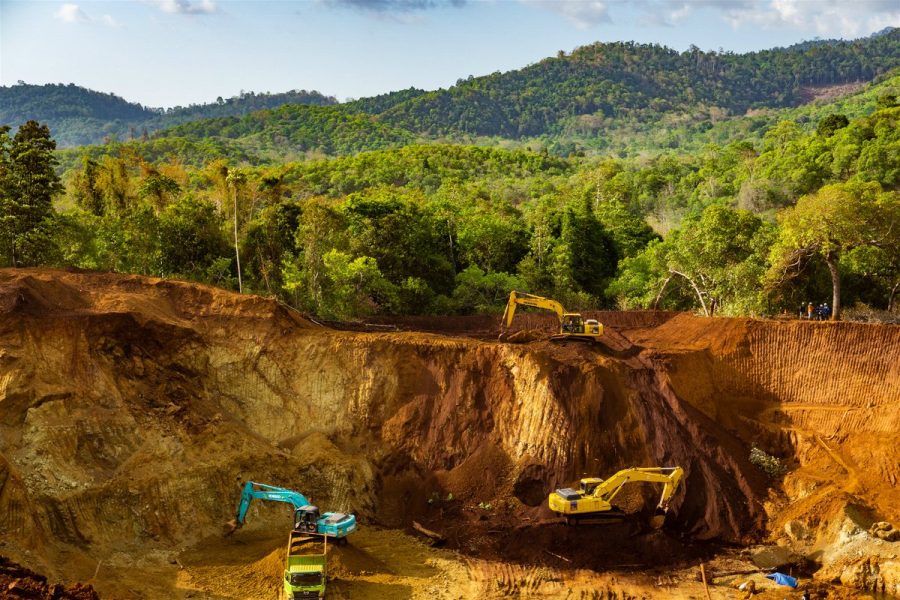Despite Progress, Indonesia Will Still Rely on Coal Power
In order to reduce global warming effects, Indonesia plans to build a green industrial park with an area of 40,000 acres which would “become a hub for green manufacturing using the country’s vast mineral reserves.” Along with this, in November 2022 world leaders, including U.S. President Joe Biden, and financial institutions announced a $20 billion deal to help Indonesia get off coal power and move towards more renewable energy sources.
This deal seeks to shift Indonesia’s power sector by about seven years and “result in a cumulative reduction of more than 300 megatons in greenhouse gas emissions through 2030 and a reduction of well above two gigatons through 2060.” A similar plan was employed with South Africa, and the goal of these deals are to serve as a model for multiple industrializing countries to transition the economy from coal to renewable energy in a more secure way.
Although the plans for a new green industrial park seem like a step in the right direction, this would take many years with Indonesia planning to build more coal plants in the meantime. Indonesia’s push to build more coal plants should not be endorsed.
Indonesia’s plan to build more coal plants contradicts the deal to help Indonesia to shut down current coal plants. Indonesia currently has “more coal power than it can use,” with 60% of its electricity coming from the carbon-emission-heavy energy source. The $20 billion deal would allow Indonesia to transition off coal plants in an easier economic manner and have the added benefit of decreasing fossil fuel emissions. Yet there is a loophole in the deal which allows Indonesia to keep building coal plants if “they are already in the pipeline or attached to nationally strategic projects like the green park in Indonesian Borneo.”
While the new deal may help Indonesia transition to reduced emissions in a more secure and economic manner, in the long run there will be no change as new coal plants would still be built. The building of these new coal plants would add to the problems from climate change as research shows that “to keep warming less than 1.5 degrees Celsius and avoid the worst effects of climate change, there must be ‘no new development of unabated coal-fired power plants.’” In the end, there would need to be another plan to transition off those coal plants which would put Indonesia back to where it was before.
Many are also worried about the connections between politicians and coal plants. The owner of the new green park is a coal billionaire and whose brother is the Minister of State Owned Enterprises. In addition, politician Luhut Pandjaitan who is helping the deal get off the ground also has holdings in coal. While the government tries to reassure that there are no vested political interests in which coal plants will get built or remain, there is still worry over the ties between officials working on the new deal and coal.
Consequently, Indonesia’s renewable energy industry faces roadblocks which limit them from the targets of the new deal. For example, Indonesia has “a price cap that keeps coal prices artificially low”, which allows renewable energy industries to sell electricity at a lower price in order to be able to compete.
Although Indonesia wishes to transition away from coal, new uses for coal are still being looked into like being able to turn coal into gas for cooking which “in addition to having high emissions, is expensive and requires subsidies.” International banks also provide support for coal plants by financially investing in these new developments.
In conclusion, while the new deal sounds beneficial in helping Indonesia smoothly transition to more renewable energy sources, there are obstacles that would reduce the impact of this deal. Although this new deal sets ambitious goals, the funding for new coal plants and developments would counteract any progress being made. Reaching zero emissions for Indonesia is a high goal to set and in order to achieve it, there shouldn’t be any loopholes which cause setbacks. Indonesia currently has more coal power than the demand and building more plants won’t help anyone.
Saisha Islam, FCRH ’25, is a biology major from New York, N.Y.

Saisha Islam is a senior from the Bronx, N.Y., who is majoring in biological sciences and minoring in English. She first joined The Fordham Ram as a contributing...










































































































































































































